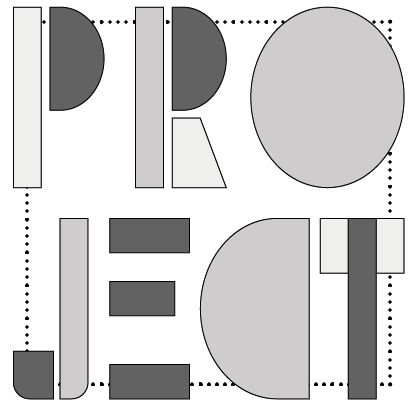
Culture Goes Sustainable – Empowering Cultural Institutions for the Sustainability Transition October 2024 – September 2028
Researchers: Martin Müller (Lead PI), Leticia Labaronne (Project Co-applicant), Giovanna Gray Nassralla (Project Co-coordinator), Zoé Berney (Research Advisory), Greta Ortalli (Doctoral Student), Laura Noll (Scientific Collaborator), Malgorzata Cwikla (Scientific Collaborator)
Funding: Swiss National Science Foundation (SNF), Innosuisse (BRIDGE Discovery)
Culture Goes Sustainable aims to empower museums and performing arts institutions worldwide to become leaders in the sustainability transition. This project develops a structured, research-based approach that integrates existing initiatives while addressing the specific contexts of cultural institutions. A key aspect is the establishment of the Alliance Culture for the Planet, a global community of practice that will ensure the long-term impact and continuity of these efforts beyond the project’s duration. The project focuses on developing collaboratively a Sustainability Framework and Management System (SMS) to provide cultural institutions with tools for measuring, monitoring, and managing their sustainability efforts. It also establishes a Sustainability Label, creating a governance structure for recognition, partnerships, and sector-wide visibility. Additionally, a Curriculum and Qualification Programme is designed to build capacity and integrate sustainability into cultural institutions.

Sports for the Planet? Analysing the Sustainability of Major Sports Events February 2024 – January 2028
Researchers: Martin Müller (Lead PI), David Gogishvili (Senior Researcher, Project Coordinator)
Funding: Swiss National Science Foundation
Major sports events like the Commonwealth Games, Olympics, and World Athletics Championships have driven urban transformation, economic ventures, and global media attention but have often faced criticism over human rights, corruption, and environmental impact. Despite their global influence, there has been a lack of systematic, longitudinal research on their sustainability. To address this gap, this project develops a conceptual model and indicator framework to analyse the sustainability of major sports events. Employing a mixed methods approach, it compiles a detailed database with over 60 indicators covering 260 editions of 24 major events from 1990 to 2024, enabling comparative analysis over time. Additionally, eight in-depth case studies provide context-specific insights into factors influencing sustainability outcomes. A multidisciplinary team examines four interconnected themes: Cities & Environment, Governance & Performance, Integrity & Human Rights, and Media & Diversity. This pioneering research culminates in the creation of the Lausanne Observatory of Major Events (LOME), which monitors and benchmarks future events, promotes greater sustainability.

Uneven Geographies of Urban Knowledge September 2024 – ongoing
Researchers: Martin Müller (PI), Quentin Rihoux (Research Assistant), Laura Neville (Postdoctoral Researcher)
More than four-fifths of the global urban population live in the Global South and East. Most urban theories, however, originate in the Global North. Building on recent efforts to address this mismatch, this research seeks to examine the geographies of urban knowledge production by analysing the institutional affiliations of contributions in leading Anglophone urban journals urban handbooks. The first results indicate that Northern institutions still dominate knowledge gatekeeping, while authors are more diverse. These findings underscore the need for greater epistemic diversity in gatekeeping positions and broader understandings of what counts as theory to better incorporate diverse urban knowledge.

‘Urban Projectification’, and the politics of spatialising urbanisation through projects. September 2024 – ongoing
Researchers: Quentin Rihoux (Doctoral Student)
Quentin Rihoux’s PhD research lies at the intersection of political economy and cultural theory, with a particular focus on urban projectification – the growing and worldwide tendency of cities to invoke projects as habitual, legitimate and performative responses to urban problems. While critical urban studies literature on projects sees them primarily as instruments of urban governance, he proposes to supplement this approach by investigating how the project as a conceptual framework is becoming increasingly pervasive for the transformation of urban spaces, with a focus on the dynamics of order, power and contestation within these processes. The mixed methods design incorporate database analysis and assemblage applications with ethnographic sensitivity. It aims to advance urban political geography debate on the politicisation of urbanisation processes and to partake in developing a postcolonial understanding of how concepts shape the production of cities.
Materialities of big buildings: exploring the material assemblages of practices, affective experience and culture-led politics with the European Solidarity Centre in Gdańsk (Poland)
October 2020 – ongoing
Researchers: Clotilde Trivin (PhD Candidate)
Funding: Swiss National Science Foundation
Clotilde Trivin’s PhD research lies between critical architectural geographies and global urbanism, focusing on the materialities of the European Solidarity Centre – an iconic and politically controversial cultural center in Gdańsk (Poland). Commonly investigated as global icons, political symbols, or urban development tools, major cultural buildings are primarily understood in relation to other functions and scales, thereby overlooking their materiality and its agency. Drawing on assemblage thinking, she analyses how the “bigness” of major cultural buildings is materially assembled through practices, affective experiences and culture-led politics. Her research experiments with various approaches to the materialities of buildings both theoretically – drawing on practiced-oriented, vitalist and negative-inspired frameworks – and methodologically – mobilising mobile, sensory and autoethnographic methods. Her thesis contributes to debates on material ontologies in urban and cultural geography and partakes in advancing research on major cultural buildings and urban belonging and in the Global East.
The Everyday Politics of Urban Landmarks
September 2020 – August 2025
Researchers: Violante Torre (PhD Candidate)
This PhD thesis aims to decenter urban geography’s approach to landmark buildings, which often views them as circulating global urban forms. Focusing on Istanbul’s Hagia Sophia after its 2020 conversion into a mosque, it explores how landmark buildings shape and are shaped by urban politics, everyday practices, and affective-material entanglements. It examines how such spaces are inhabited at the intersection of the ordinary and the exceptional, where materialities, emotions, and power relations intertwine. Through six months of ethnographic research (2021–2023), and mobilizing affective mappings, the study follows everyday actors such as tourist guides, cleaners, and shopkeepers, analyzing their affective and corporeal engagements with the building’s materiality, and broader urban tensions. This research contributes to urban geography’s understanding of landmark buildings by engaging with insights from architectural geographies’ explorations of affective politics, feminist geography’s work on embodiment and care, and urban geography’s studies of everyday urbanism.
Thinking with the Global Easts
August 2016 – ongoing
Researchers: Martin Müller
Carving up the world into Global North and Global South has become an established way of thinking about global difference. This binary, however, erases what this project calls the Global East – those countries and regions that are often labelled post-socialist and are neither clearly North nor South. This project seeks to think the Global East as that unbounded region which is suspended between globalising processes and the legacies of multiple transformations from imperialism to communism to neoliberalism and neopatrimonialism. It works through cases ranging from IKEA to Sci-Hub to recover the Global East for scholarship and probes the distinctiveness of its contribution for a global theorising of state, cities and society.

